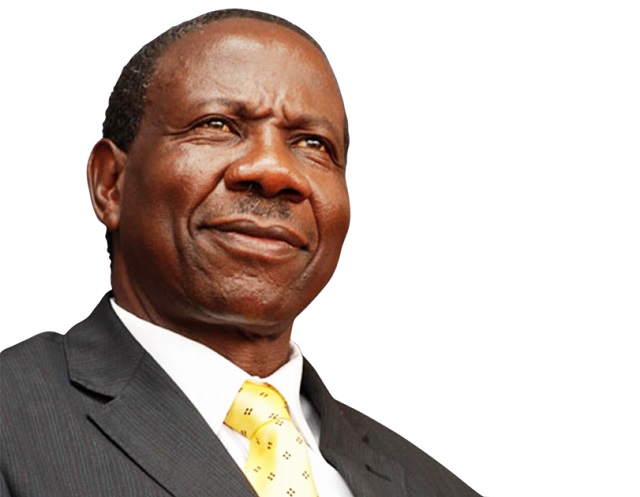
How to raise money from ideas that failed
Kampala, Uganda | ISAAC KHISA | Finally its May, the month in which parliament as the Committee of Supply debates and passes the 2021/22 national budget. Unlike in recent years, the focus of debate has shifted from sector allocation to another one of the main components of the budget; the tax bills. And even after parliament on April 29 passed a raft of taxes, the strategic picture remains confusing.
That the Ministry of Finance is trying to raise money in the midst of increasing poverty and limited revenue options is clear. Uganda’s domestic revenue as a percentage of GDP was 14.1% in FY2016/17, oil inclusive. That is among the lowest in Africa whose average is 17%.
What is not so clear is why the Finance Minister, Matia Kasaija, is doing exactly what has in the past failed in more robust economic times with the burden of the COVID 19 pandemic on businesses.
Is Kasaija really sure that tightening the tax around small businesses and cracking the whip on defaulting taxpayers will deliver the money he needs?
Gideon Badagawa, the executive director at the Private Sector Foundation Uganda, an apex body of the private sector, said the government must collect tax but must be efficient at the same time. He says the government must first broaden the tax base, increase the number of investments, increase production and create jobs for the people to be able to pay taxes.
He also says that effort should be put in creating a good business environment.
“We were all affected by COVID-19, businesses were closed and they are still recovering and therefore government slapping them with new taxes is not helping. They will collapse and who will pay the taxes?”
Parliament has approved most of the tax amendments that touch on indirect taxes presented by the Ministry of Finance. But they have opposed most that touch on incomes.
Tax amendments passed include a 30% or Shs250 tax whichever is higher on locally made alcohol, a 12% tax on internet access data except for health and educational purposes to replace the uncollectable Over The Tax (OTT), a 30% tax on rental houses, a tax of US$0.8 per kg of tobacco exported out of Uganda, and a levy of US$200 per kg of gold exported and 1% of the value of any other unprocessed mineral exported.
But parliament rejected the Shs 200,000 annual license levy on vehicles and Shs50, 000 annual license levy on motorbikes. The lawmakers in the Finance Committee of Parliament instead pushed for an extra Shs100 levy on each litre of fuel at the pump.
Parliament also rejected the Shs70, 000 levy on each kilogram of fish maw exported and, a US$0.4 per kg exported of wheat bran. They kept the levy on exports of cotton cake, maize bran and any other by-products of the milling industry.
It is clear the minister anticipates a rough year ahead for tax collectors. That possibly explains why he has swung the penalty for obstructing a tax officer from Shs960, 000 to Shs5 million and imprisonment from 2 years to 10 years and introduced a new offence of aiding or abetting a tax offence by a tax agent. That has a penalty of Shs5 million and a possible jail term of 5 years.
The penalties for other offence have equally been doubled. Committing any offence relating to recovery of tax fetches a penalty of Shs5 million and a possible jail term of 10 years.
Makerere University Business School don, Ramadhan Ggoobi, said the government seems to be under pressure to raise domestic revenue and reduce borrowing but the direction they have taken is all wrong.
“In the 90s when the government faced this pressure they responded through fiscal discipline. Now they are responding differently. I am not surprised that these new taxes were introduced at the wrong time. It seems the government has run out of options,” he said.
Jane Nalunga, the Executive Director at the Southern and Eastern Africa Trade Information and Negotiations Institute (SEATINI) Uganda, told The Independent that the proposed taxes and their associated fines and penalties will simply create an avenue for corruption and not increase in compliance.
“In fact revenue collection in this year will be a very big challenge,” she said.
Observers note the Minister’s determination to collect more money this Financial Year but they also point out how similar measures have in the past led to the Uganda Revenue Authority (URA) posting revenue collection shortfalls every financial year.
The URA closed the 2019/20 FY with a shortfall of Shs3.6 trillion, worsened by the effects of the COVID 19 pandemic on the economy. It had a target of 20.4 trillion and collected Shs16.8 trillion. The year before, FY2018/19, the target was 16.4 trillion and the shortfall was nearly Shs700 billion. In FY2017/18 it was Shs659 billion and in FY 16/17 it was Shs377 billion.
And when Kasaija, and his team quickly agreed to drop the annual license levy on vehicles and go with the indirect levy on fuel at the pump, many observers asked whether they had not played parliament a fool’s gambit; hunting an elephant to catch an antelope.
Generally, the Ministry of Finance once again appears to have disappointed tax policy analysts who have for years demanded major policy reforms to align the tax system with broader government objectives and developmental strategies such as Vision 2040 and the National Development Plan III.
 The Independent Uganda: You get the Truth we Pay the Price
The Independent Uganda: You get the Truth we Pay the Price



